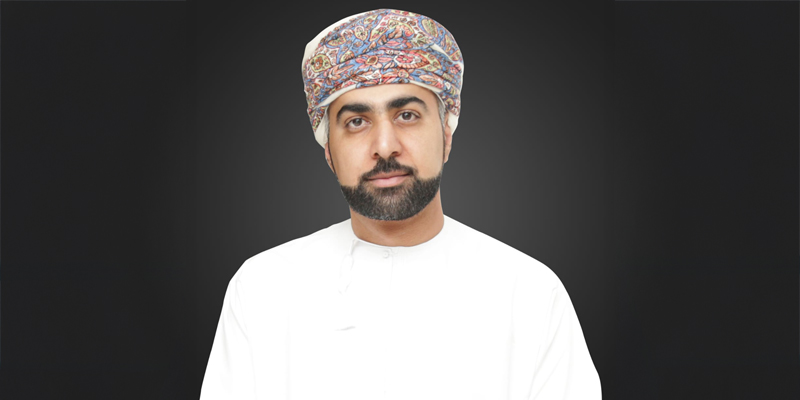
29 Apr Interview with Nasser Al-Kindi, CEO, Invest OMAN, Sultanate of Oman
JT: How does Invest OMAN support investors in capitalizing on the country’s strategic initiatives aligned with Vision 2040 opportunities?
Al-Kindi: Invest OMAN is a government organization under the Ministry of Commerce, Industry & Investment Promotion, designed to facilitate large-scale investments in sectors crucial to Oman Vision 2040, such as Renewable Energy, Manufacturing, Mining, Logistics, Agriculture & Fisheries, and Tourism. We provide end-to-end support, helping investors navigate the entire process from exploration to establishment. Each client is assigned a specialist relationship manager to expedite arrangements and formalities. We also have 15 government bodies within our building, making vital information and connections easily accessible. Our Go-To-Market team identifies high-potential opportunities and connects with top global companies, while our Fast Track team works closely with government officials to resolve obstacles and ensure projects stay on track.
JT: Could you elaborate on the specific investment incentives Oman offers and the country’s main competitive advantages?
Al-Kindi: Oman offers numerous incentives, including 100% foreign ownership, and a 30-year exemption from 15% corporate tax in free zones like Suhar, Salalah, and the Special Economic Zone at Duqm. There is no personal income tax, no restrictions on currency exchange, dividend transfer, or profit repatriation, and VAT is set at just 5%. Land and utilities are competitively priced, and business costs are favorable compared to the region. Additionally, Oman’s Free Trade Agreements with the US and Singapore, along with membership in the Greater Arab Free Trade Area (GFTA), provide valuable market access. Substantial financial resources are available, such as the Oman Investment Authority’s $5.4 billion Future Fund, which supports both domestic and foreign investors. The Development Bank offers financing tailored to investors, with a focus on sustainable investment. For large-scale investments over OMR50 million, special packages may include reduced gas rates or tax exemptions in exchange for contributions to job creation or sustainability. Invest OMAN uses a ‘Team Oman’ approach, partnering with ministries to negotiate these tailored incentives, which showcase Oman’s pro-business, results-driven mindset. Beyond incentives, Oman’s strategic location, world-class infrastructure, and political stability make it an attractive destination for investors.
JT: Which sectors in the Omani economy currently offer the most promising investment opportunities?
Al-Kindi: The renewable energy sector is receiving significant attention, particularly as Oman positions itself as a competitive green hydrogen producer, with projections of one million tonnes produced annually by 2030 and up to 8.5 million tonnes by 2050. This creates opportunities across the value chain, including the manufacturing of wind turbines and solar panels. Moreover, Oman’s manufacturing sector has seen remarkable growth, attracting OMR2.1 billion in FDI by September 2024, marking a 51.9% increase over 2023. Downstream manufacturing, such as automotive production and white goods, as well as processing metallic and non-metallic minerals in mining, are key areas of opportunity. In logistics, integrated cold chain solutions and e-commerce fulfillment are emerging as key growth areas. In agriculture and fisheries, food processing and aquaculture are gaining significant attention. Additionally, Oman’s space industry is booming, highlighted by the Duqm Spaceport and its cost-effective advantages. The Circular Economy is also developing, with initiatives like the Evergreen Gulf Recycling Hub in Salalah and the Suhar Industrial Waste Handling & Treatment Facility driving innovation in waste management and recycling.
JT: How do you see Oman’s investment climate evolving, and which factors are growing in importance for investment decisions?
Al-Kindi: Sustainability is becoming a key driver of investment, with Oman’s rigorous efforts to achieve its Net Zero target by 2050 through initiatives like the National Strategy for an Orderly Transition to Net Zero, the establishment of the Net Zero Centre, and policies promoting sustainability. Regional cooperation within the GCC is also increasingly important, facilitating larger projects that draw on shared resources and expertise. Examples of successful collaboration include the US$9 billion Duqm Refinery, Sohar Aluminium, and the 500MW Ibri II Solar Project. Additionally, the joint venture between Oman Rail and Etihad Rail for the US$3 billion Hafeet Rail project is a game-changer, creating a cross-border rail network that will link Oman’s Sohar Port to the UAE’s National Rail Network, boosting logistics and manufacturing opportunities.
JT: What message would you like to share about continuing to do business with Japan and attracting more foreign direct investment from this market?
Al-Kindi: The relationship between Oman and Japan is built on mutual respect and collaboration. We celebrated 50 years of diplomatic relations in 2022, and our trade reached OMR1.3 billion in 2023, reflecting a long-standing partnership. As Oman enters a new era of growth under the leadership of His Majesty Sultan Haitham bin Tarik, we are focused on deepening Japanese participation in our economy. We aim to present Japan with new opportunities as we diversify our economy and pursue sustainable development, and Invest Oman is here to support both existing and potential investors in this journey.
JT: Do you have any closing remarks for readers considering visiting or investing in Oman?
Al-Kindi: As we look ahead to the Osaka Expo 2025, we extend our best wishes for its success. This event will provide an excellent opportunity for Omani businesses to showcase their potential and foster new partnerships with Japanese counterparts, continuing our strong legacy of cooperation and collaboration.
